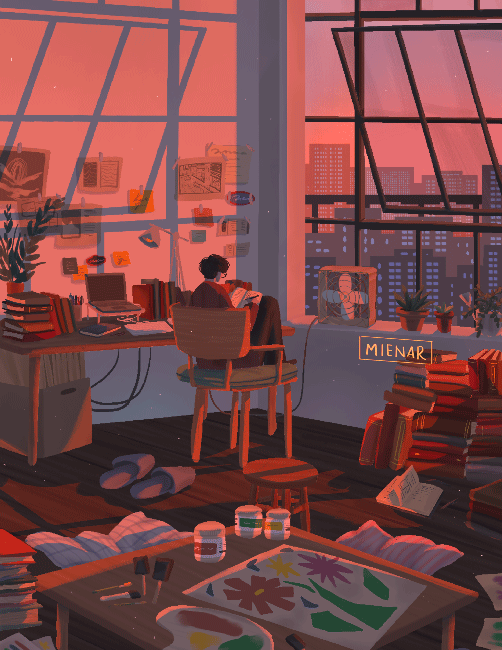#industry plants
Explore tagged Tumblr posts
Text


No because Tommy Richman is criminally underrated. His music is so good and I hate when people call him an industry plant but he's been making music SINCE 2019. I swear they only say that because he has like two hit songs, I swear this is why y'all need to educate yourselves on terms like not everyone can be an industry plant, like Ice Spice I understand but TOMMY! Y'all niggas are dumb ASF.
(I'm black btw)
3 notes
·
View notes
Text
Taylors wift is just elon musk for horse girls and gays who are afraid of faggots
#punkblogging#if any of y'all call me a fucking misogynist for this#I literally almost exclusively listen to women fronted bands it's not because she's a woman#I even listen to pop sometimes!!! (I mean not radio pop but still)#she is just fucking lame as a human being and she's an awful songwriter and an industry plant in the exact same ways as musk#I could say this about most men in the music industry as well but no one is out here fucking worshipping... idek I literally#do not know enough men fronted bands to put together an example
10K notes
·
View notes
Text

at the artist's loft
instagram | shop | commission info
#artists on tumblr#illustration#animated illustration#animation#backgrounds#scenery#animated gifs#plants#loft#workspace#industrial loft#myillust#hi everyonee! just wanted to share this artwork that i've made just fresh from the oven!#i really just felt like drawing some loft windows + its shadows on the wall + a specific peach-pink kinda sunlight lighting so here it is!#making this to be an artist loft was completely self-indulgent tho!#i had a bittersweet time filling the room up with clutter as if it's my own room huuuu living in a loft is a dream of mine - one day!#anywayss! i hope you'll like this and i hope you'll have a lovely day/night ahead! :D
4K notes
·
View notes
Text
I am so tickled by the thought of Daniel’s family seeing him at almost 80 branch out into a new social circle comprised of beautiful men in their 20s and 30s that are also the most intense and bizarre people anyone’s ever met and worse now Dad is acting Exactly Like Them
#weird ass glam rock celebrity that came out of nowhere fighting the industry plant allegations#beautiful mysterious art dealer with a history with your dad that’s indescribable#and worst of all. your dad’s 130 pound 28 year old boyfriend who’s presence makes everyone’s hair stand on edge#good for him we all say#interview with the vampire#lestat de lioncourt#louis de pointe du lac#the vampire armand#daniel molloy
2K notes
·
View notes
Text
ESP 2: Are Industry Plants Real?
#youtube#podcast#Industry Plants#Prodigy#Drake#TLC#Left Eye#lizzo twerks up a storm wearing tiny bikini on a speedboat#billie eilish#Dissect The Dialogue#Music#hip hop#r&b music#rock music#Spotify
0 notes
Text



Mill ruins from 1786
#mine#nature#england#countryside#photography#ruins#mill#architecture#history#industrial revolution#rural#nature photography#buildings#river#waterfall#plants#stream
6K notes
·
View notes
Text
Leave It Out!: In Defence of 'Industry Plants'
The music industry is a bloody mess. From the absurdly broken state of modern charts, to artists’ obscenely miniscule rate of pay for Spotify streams, the modern music industry has a list of glaring issues as long as your arm. But, as human beings are want to do, we can’t help but keep adding new things to the list to complain about. The latest such talking point in music circles being buzzy…

View On WordPress
#articles#industry plants#music#music industry#olivia rodrigo#picture parlour#the last dinner party#wet leg
0 notes
Text

The International Book of Lofts, 1986
#vintage#vintage interior#1980s#80s#interior design#home decor#living room#slipcovered#upholstery#furniture#exposed brick#half moon#window#house plants#loft#industrial#modern#style#home#architecture
2K notes
·
View notes
Text
i need swifties to shut the fuck up about 'oh so kendrick's disses can be analyzed for hidden meanings but we can't do the same for taylor songs' yeah bc that's not isolated to kendrick. subliminals and entendres abound in rap. taylor swift songs are as deep as a puddle while youre wearing flip flops and your feet still arent wet
#kendrick lamar#she's a rich industry plant talking about people not surviving the asylum they raised her in. girl shut the fuck up#she'd cry if you took her pet jet away#you seriously think she's on the same level as a pulitzer prize winner who wrote TO PIMP A FUCKING BUTTERFLY#and an album you can listen to either forwards or backwards and the meaning changes???? you think ahe can write smth as haunting as U????#also why the fuck are swifties even inserting themselves in this shut up sit down be humble
2K notes
·
View notes
Text
"industry plant" is literally just the new way of saying "this female artist is having a lot of success and I don't like her for it".... like ok well personally I just don't find it that hard to believe that young women can be talented and work hard and achieve things
#like i have never seen a male artist be accused of being an industry plant 🤔🤨#also it's just funny because more often than not they've literally being working and releasing music for years before their breakthrough#like obviously i've followed sabrina but even chappel who i'm not a follower of i've been aware of her gradual rise for ages#if they were planted then whoever did it was slacking at growing them for years i guess!#(i also saw one of these comments say that sabrina being pushed by 'the industry' is unfair to smaller artists like gracie abrams#and i have to laugh like no shade at all to gracie but do we really think miss ABRAMS is the best example of disadvantage in the industry)#talking
476 notes
·
View notes
Text




Arabelle - GE steam turbine for nuclear power plants ☢️🏭⚡
😻/😻/😻/😻
#aesthetic#cyberpunk#tech#tech aesthetic#electricity#engineering#power plant#elektrostantsiyapost#technology#engineers#engineer#electrical engineer#electrical engineering#engblr#steam turbine#nuclear energy#nuclear#nuclear power plant#power engineering#nuclear engineering#power generation#electrical#arabelle turbine#turbine#industrial#turbine blades#aren't steam turbines beautiful?#nuclear power#machines#steel
441 notes
·
View notes
Text
assad deploying industry plant rpf when he joked armand’s stares are looks of love and then turned to stare deeply into eric bogosian’s eyes
#iwtv rpf#zamasian#i always forget how wild he was getting with it#s3 promo industry plant rpf save us
85 notes
·
View notes
Text
Ahsoka should get to go undercover as a pop star.
#idk if she's an industry plant. a 'fake German heiress' thing where she just lies to everyone.#or looks similar enough to an actual celebrity that they toss some makeup on and have her lip sync and go to fancy parties#star wars#the clone wars#phoenix talks#ahsoka tano
150 notes
·
View notes
Text







Heat and Power Plant | Urbex 15 / 2019 | Zone E / Hellveyor | Gallery 1 of 2
#Photographers on Tumblr#Original Photographers#Photography#Nikon#Heat and Power Plant#Power Plant#Conveyor Belt#Heating Plant#Industry#Impressions#Nikon D7200#Sigma 1750#UE#UrbanExploration#Exploration#Urbex#Urbex 2019#UrbexSkalmar#UrbexKind#MaciejSmolenPhotoGraphics
70 notes
·
View notes
Text
While I'm on my disruptive Tolkien opinions kick:
Yes, obviously, he was a conservative Catholic and this was really important to his understanding of the world and pervades his work and so on and so forth.
But I'm a bit "..." about reducing everything he thought and felt about the world to that. Like, yeah, there's a tradition of conservative pastoralism that meant the context of his environmental opinions was not inherently progressive in the way it can mistakenly seem in 2024. Do I think he was Like That about trees because of conservative pastoralism, or his Catholicism, or that the particular form taken by his TREES TREES TREES #OLDMANWILLOWDIDNOTHINGWRONG TREEEEEEEEES ethos much resembles most of his contemporaries' feelings?
Not really.
I mean, he would never have said it, but I kind of doubt whether his very sincere and deeply felt veneration of the actual figures of his religion was truly comparable to how he felt about things like That One Oak on the Corner That I Liked Got Chopped Down by Evildoers. I've read other conservative British writers of this era who have their own forms of pastoralism and most of them are way less intense about it. I truly don't think Tolkien loved trees the way he did Because Catholicism or whatnot. I genuinely think he just really loved trees.
Basically, I can imagine some alternate universe in which alternate Tolkien ends up with really different beliefs about religion, about politics, about all sorts of things. But I can absolutely not imagine a universe in which any version of Tolkien did not take the part of trees against all their enemies.
#honestly easier to imagine au jrrt as a neopagan anarchist ecoterrorist than au jrrt as still conservative but pro industrialization#sorry my dude i know you had important opinions about the immaculate conception of mary and her uniquely unfallen nature etc#but i am not convinced you cared more about that than any random plant you passed on your nature walks#i was going to connect this to his evolution on early númenórean imperialism between lotr and the mariner's wife but alas i must dissertate#anghraine babbles#deep blogging#legendarium blogging#jrr tolkien#legendarium fanwank#also ... people joke about him representing his friend lewis as a tree person in lotr#but honestly given who jrrt was as a person i'm not sure he could envision a greater honor
276 notes
·
View notes